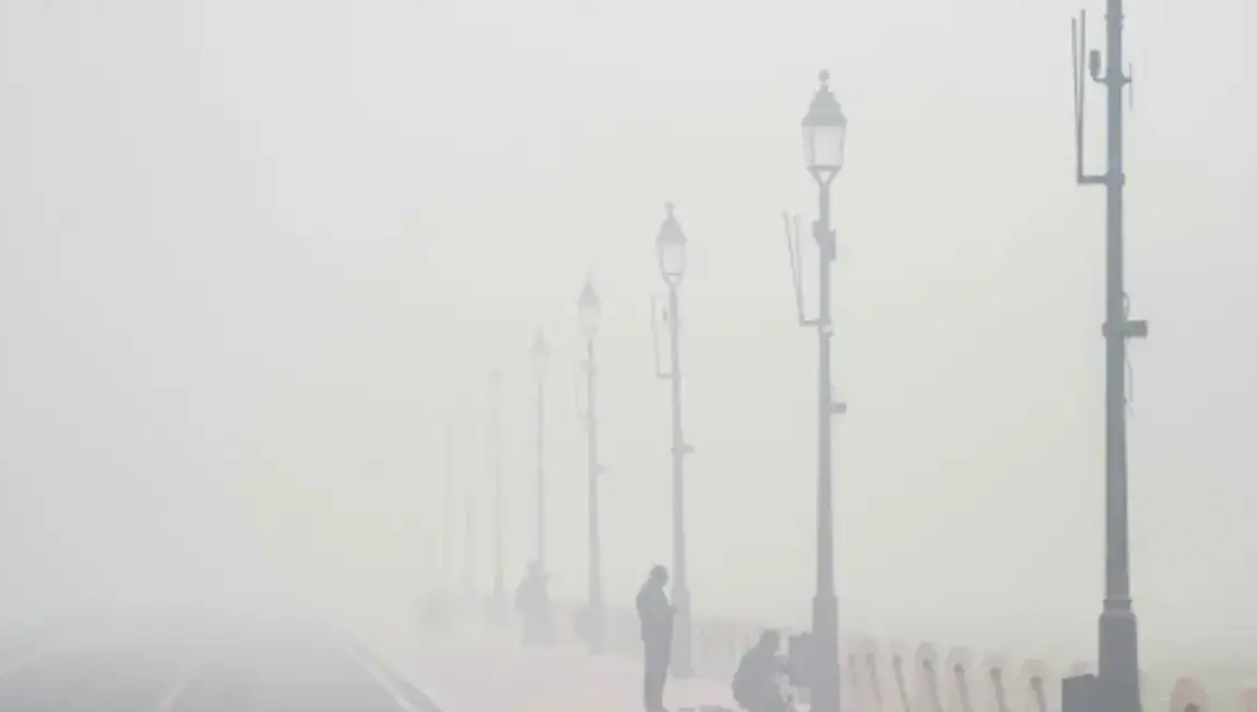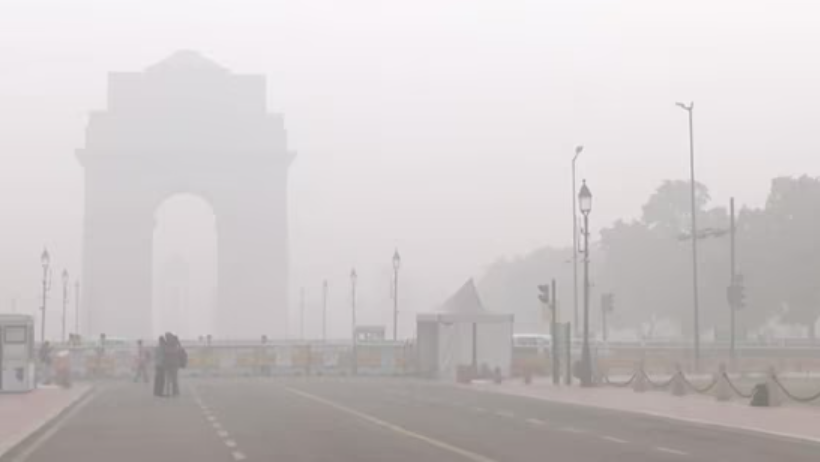Delhi’s air quality showed a slight improvement on Thursday, but it remained in the very poor category. A thick blanket of smog continued to cover the National Capital Region (NCR), including Delhi, Noida, Ghaziabad, and Gurugram.
Air Quality Index (AQI) Levels
At 7 a.m., Delhi’s overall Air Quality Index (AQI) stood at 379, placing it in the very poor category. However, some parts of the city reported AQI levels over 400, which falls into the severe category. Jahangirpuri and Wazirpur recorded the highest AQI levels at 437, followed by Bawana at 419 and Ashok Vihar and Mundka at 416, according to the Central Pollution Control Board (CPCB).
The Indian Meteorological Department (IMD) forecasted a temperature range of 11°C to 26°C for Thursday. Despite slight improvements in some areas, smog continued to reduce visibility, leaving the city covered in a gray haze.
New Pollution Control Measures in NCR
Due to the rising pollution, the Commission for Air Quality Management (CAQM) updated the Graded Response Action Plan (GRAP) on Wednesday. Under the revised plan:
- Mandatory School Closures: All schools in Delhi, Gurugram, Faridabad, Ghaziabad, and Gautam Buddh Nagar must switch to online learning.
- Staggered Office Timings: Public offices in Delhi and surrounding NCR areas will operate with staggered working hours.
These measures, which were previously optional, are now mandatory for certain regions.
Supreme Court Takes Action
Earlier this week, the Supreme Court criticized the CAQM for delaying stringent pollution control measures. The Court ordered immediate actions, including school closures, to protect children from the harmful effects of pollution.
Ongoing Pollution Crisis
Delhi’s air quality has been in the severe category since Sunday. On Monday and Tuesday, it even crossed into the severe plus category, with AQI levels above 450. Experts continue to urge the government to enforce stricter measures to tackle the ongoing pollution crisis.

Delhi Government’s Response
To reduce health risks, the Delhi government announced on November 20, 2024, that 50% of its employees will work from home. This move aims to reduce exposure to harmful air while ensuring essential services continue. Critical sectors like healthcare, fire services, public transport, and sanitation are exempt from this directive.
The Path Forward
With pollution levels still dangerously high, experts and authorities stress the importance of collaborative efforts between the government, judiciary, and public. Only through these efforts can we ensure a healthier environment for residents in Delhi and the NCR.
Key Takeaways:
- Delhi’s AQI remains in the very poor category at 379.
- Smog continues to cover Delhi, Noida, Ghaziabad, and Gurugram.
- 50% of Delhi govt employees will work from home to reduce exposure.
- Mandatory school closures and staggered office hours are now in effect.
The situation continues to highlight the urgent need for sustainable urban practices and stronger anti-pollution measures to safeguard public health.




